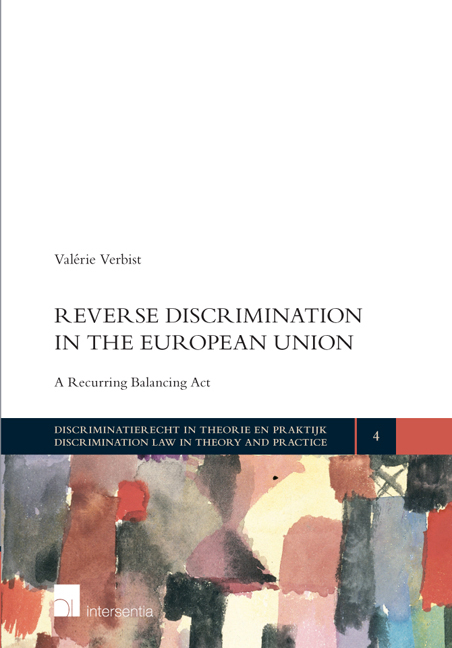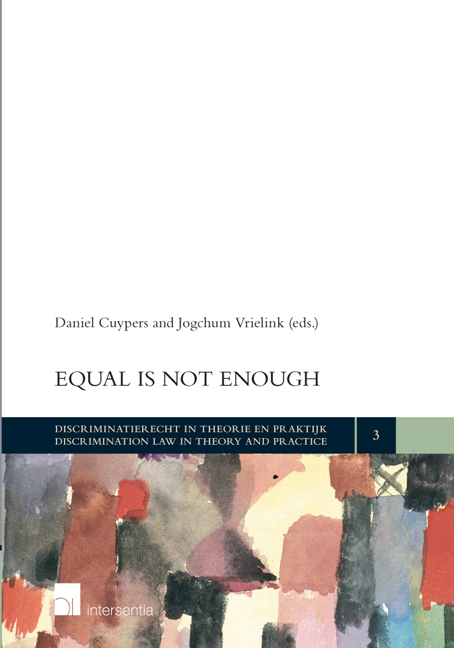2 results in Discrimination Law in Theory and Practice

Reverse Discrimination in the European Union
- A Recurring Balancing Act
-
- Published by:
- Intersentia
- Published online:
- 29 September 2018
- Print publication:
- 15 June 2017

Equal is not Enough
-
- Published by:
- Intersentia
- Published online:
- 21 September 2018
- Print publication:
- 20 September 2016

